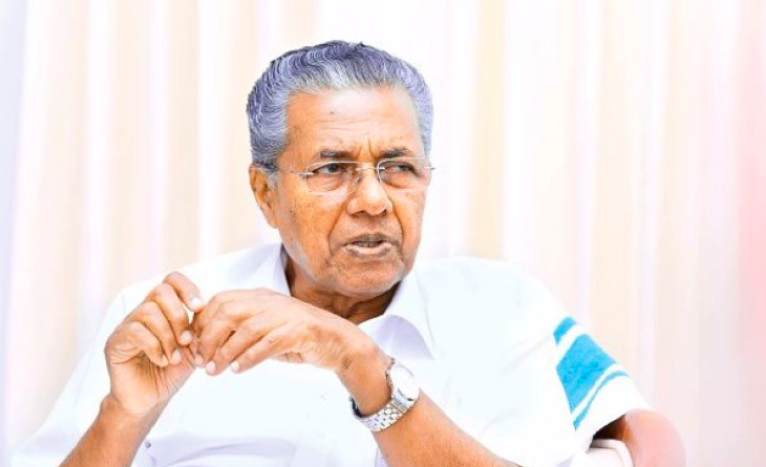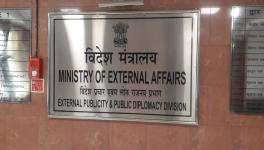Kerala Accuses Centre of ‘Capturing’ Co-operative Societies

The Centre announced the formation of co-operation ministry on July 6, 2021 despite co-operative societies placed under entry 32 of the state list in the Seventh Schedule of the Constitution.
The formation of multistate co-operatives societies (MSCS) was announced in the 2021-22 Budget speech. The ministry would provide a “separate administrative, legal and policy framework for strengthening the cooperative movement in India” besides streamlining the “ease of doing business”.
Though several states opposed the move, Kerala has been the staunchest opposer given its track record of successfully running co-operative societies for more than a century.
‘VIOLATION’ OF FEDERAL PRINCIPLES
The Multi-State Co-operative Societies (Amendment) Bill, 2022, was introduced in the Lok Sabha on December 7 last year by amending the Multi-State Co-operative Societies Act, 2002. The joint parliamentary committee report is expected to be tabled during the second part of the Budget Session.
The Bill, among several amendments, paves the way for merging any co-operative society into an existing MSCS and the Centre will establish a Co-operative Election Authority.
Kerala co-operative minister VN Vasavan accused the Centre of encroaching upon the powers of state governments. “After ‘One Nation, One Language’, the BJP plans to introduce ‘One Nation, One Registration’ policy. This is intended to grab powers from state governments,” he said in a statement.
The LDF government has accused the Centre of not consulting the state despite the co-operative sector under the State List.
“The department secretary and registrar are directly given instructions from the Union ministry, against the federal principles and constitutional directives,” Vasavan added.
MSCS ‘AGAINST’ THE CONSTITUTION
The MSCS came into existence after the enactment of the Multi-State Co-operative Societies Act, 1984. Kerala has raised the alarm over MSCS in the state.
“The state government literally has no control over MSCS. These societies are empowered to collect funds, fix interest rates independently, among other functions. There have been several incidents of MSCS seizing operations after collecting funds, leaving people in the lurch,” the minister alleged.
Vasavan also claimed that the state government or the cooperation department can’t inspect or control such societies, leading to mismanagement and people losing hard-earned money.
The United Progressive Alliance’s (UPA) decision in 2012 to introduce Part IXB , through the 97th Amendment of the Constitution, was quashed by the Supreme Court. The court held that the Part IXB would apply only to MSCS and the government cannot dictate terms to state co-operatives.
“Without considering such implications, the BJP government is arm-twisting states to capture co-operative societies. The Bill violates the judiciary as well,” Vasavan further alleged.
WHY KERALA STRONGLY OPPOSES THE MOVE?
Kerala is known for its robust and effective co-operative system, a tradition the state inherited since the 1910s. Even before the formation of the linguistic state, Travancore (1914), Cochin (1913) and Malabar (1932) regions had their own co-operative Acts. The Travancore-Cochin Co-operative Societies Act was enacted in 1951 after the formation of the state in 1949. The Kerala Co-operative Societies Act was enacted in 1969.
Kerala is home to 1,607 primary agriculture credit societies (PACS), 3,649 dairy societies and 1,562 fisheries societies in the 941 panchayats across the state. Besides, there are 23,167 co-operatives controlled and regulated by the department of co-operatives (16,256) and others (6,911).
As per the 2022-23 Economic Survey by the State Planning Board, about 33% of the total household debt in Kerala was raised from credit co-operatives in 2018 compared to only 8% at all India-level. This itself explains the penetration of the co-operatives in the state.
Several co-operative societies in the state have proved successful, including Uralungal Labour Contract Co-operative Society (ULCCS), Brahmagiri Development Society (BDS), Kerala State Co-operative Bank Limited (Kerala Bank), SC/ST Co-operative Societies and Vanitha Cooperatives.
“The Union government is trying to destroy the people-driven system and impose vested interests on the co-operative system. The decisions of the Union co-operation department must be opposed tooth and nail given the threat it poses,” Vasavan said.
Get the latest reports & analysis with people's perspective on Protests, movements & deep analytical videos, discussions of the current affairs in your Telegram app. Subscribe to NewsClick's Telegram channel & get Real-Time updates on stories, as they get published on our website.
























